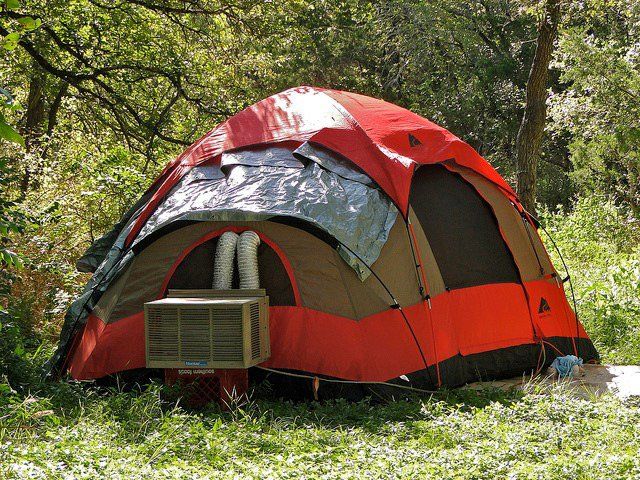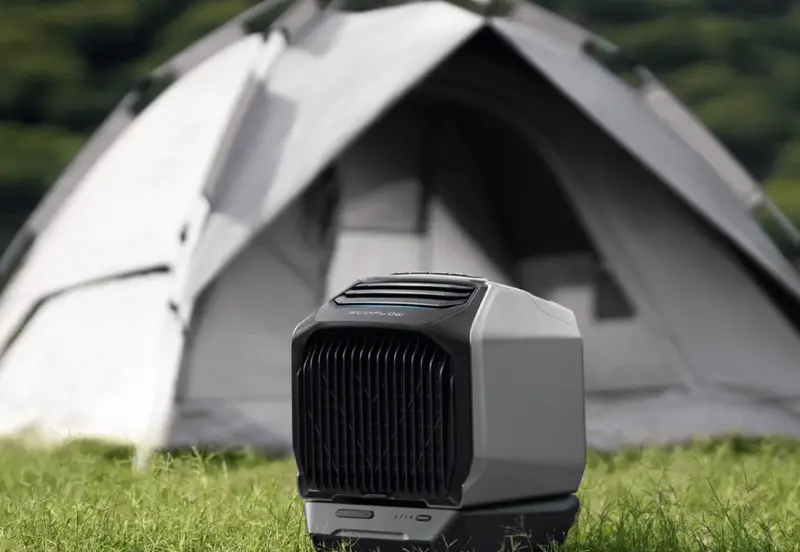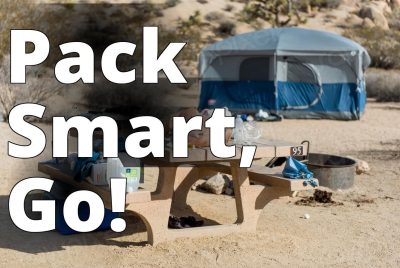Camping Air Conditioner Guide For Cool Tents
Choosing the Right Camping Air Conditioner for Your Needs
Are you planning a camping trip but worried about the scorching heat? Tent camping or camper can be an enjoyable experience, but dealing with hot air and high temperatures can be challenging. The heat inside your tent or camper during the day can make it unbearable to relax or sleep. Fortunately, there is a solution to help combat the heat and provide relief – rooftop camping air conditioners. Additionally, you can consider using evaporative coolers or swamp cooler to increase the cooling capacity of your camping setup. Another option is to invest in a speed cooling fan for added comfort.
Rooftop camping air conditioners, also known as evaporative coolers or swamp coolers, are available in the market and are designed to work on top of your tent or camper roof. They have a cooling capacity that cools down the inside temperature by circulating cold water through the system, which cools down hot air passing over it. These devices can also function as a heat pump. They are lightweight, easy to install, and require minimal maintenance.
If you’re looking for details on how these camping gear systems work, reviews from other campers who have used camping air conditioners or a camping tent, information on cost and weight, or a reliable camping generator, we’ve got you covered.

Benefits of Using a Portable Air Conditioner for Camping
Comfortable Sleeping Environment
Camping during the hot summer months can be unbearable, especially when trying to sleep in a tent. A portable air conditioner powered by a battery provides a cooler sleeping environment by regulating the temperature and humidity levels. It ensures that you get quality sleep without waking up drenched in sweat. Additionally, a fan can also be used to circulate the cool air and enhance the cooling effect.
Easy to Transport and Use
Portable air conditioners with built-in battery and 110v power source are designed to be lightweight and compact, making them easy to transport from one camping site to another. They come with handles or wheels that make it easier for you to move them around. They don’t require any complicated installation procedures, so they’re easy to use as a cooler.
Energy-Efficient and Cost-Effective
Compared to traditional RV air conditioning units, portable air conditioners are energy-efficient and cost-effective for camping. They consume less power, which means you save battery life while enjoying the 110v power supply. Moreover, since they only cool specific areas instead of the entire RV or tent, they’re more efficient at maintaining comfortable temperatures. If you’re looking for a specific brand, consider the Zero Breeze portable air conditioner.
Prevents Heat-Related Illnesses
Heat exhaustion and heatstroke are common risks when camping during hot weather conditions. Using a portable air conditioner with a fan powered by a battery or 110v power helps prevent heat-related illnesses by keeping your body temperature regulated. It also reduces the risk of dehydration by reducing sweat production.
When looking for a portable air conditioner for camping purposes, here’s what you should consider: – Battery power: Ensure the air conditioner has a reliable battery for power supply. – 110v compatibility: Check if the air conditioner can also be powered by a 110v outlet. – Delivery: Look for an air conditioner that can be easily transported to your camping site.
Size and BTU Rating
The size of your tent or RV will determine the size of the portable camping air conditioner you need. A unit with a higher BTU rating is ideal for larger spaces while smaller air coolers work well for small tents. If you’re camping off-grid, consider a battery-powered camping air conditioner to ensure you have power wherever you go.
Power Source
Consider how you’ll power your best tent air conditioners while camping. Some portable models run on battery while others require an electrical outlet or generator. You may also consider using an air cooler instead.
Noise Level
Portable AC units, including camping air conditioners, can be noisy due to their compressors and fans. Look for models with low decibel ratings if noise is a concern. An air cooler or the best tent air conditioners may also be options to consider, especially if you don’t have access to electricity and need a battery-operated unit.
Durability
Camping can be rough, so you’ll want a portable tent air conditioner or air cooler that can withstand the elements. Look for models with rugged construction and durable materials to ensure it has enough power to keep you cool.
If you’re on a budget or looking for a DIY option, here’s how to make your portable air conditioner for camping with zero breeze power delivery.
Get a cooler box, PVC pipe, and fan.
Cut two holes in the lid of the portable cooler box – one for the PVC pipe and another for the fan, perfect for camping air conditioners or tent air conditioners. Fast delivery available.
Insert the portable PVC pipe into one of the holes of your camping tent air conditioner and seal it with duct tape to ensure efficient air cooling.
Attach the portable fan to the other hole of your tent air conditioner using zip ties or screws for a more powerful camping experience.
Fill the camping cooler box with ice and turn on the fan or air conditioners if you have power delivery.
While it’s possible to put an air conditioner in a camping tent, it’s not recommended since tents aren’t designed to accommodate AC units. It’s safer to use portable AC units outside of your tent or RV, especially if you have limited power delivery options.
To use an air conditioner in your tent:
Set up your portable air conditioner unit near your camping tent entrance for maximum power and comfort. Don’t worry about delivery, as these units are easy to transport and set up on your own.
To set up your portable air conditioner while camping, simply run the exhaust hose through your tent window or door opening. Enjoy the convenience of delivery and stay cool on your next outdoor adventure.
Close off any gaps around the portable air conditioner hose using duct tape or foam insulation strips to ensure efficient power usage while camping.
Choosing the Right Size and BTU for a Portable Air Conditioner
Having a reliable portable air conditioning unit can make all the difference, especially when camping. A portable air conditioner is an excellent choice due to its size, energy consumption, and ease of use. However, choosing the right size, power, and BTU (British Thermal Units) for your portable AC unit is crucial for efficient cooling.
Why Choosing the Right Size and BTU Matters
Choosing the wrong size or BTU for your portable air conditioner can lead to inefficient cooling, increased energy consumption, and higher costs in the long run. An undersized AC unit may struggle to cool a large camping tent or RV, while an oversized one will consume more power than necessary during your camping trip.
To determine the right size and BTU power for your air conditioners needs, consider several factors such as room size, insulation level, number of occupants, sunlight exposure, and outside temperature. This is especially important when looking for portable air conditioners for camping trips.
Portable AC Units vs. Window Air Conditioning Units
While window air conditioning units may have higher BTUs than portable ones, they also come with some drawbacks such as higher noise levels and weight in pounds. Portable AC units are a great choice for camping due to their compact design and low energy consumption, which means they consume less power compared to traditional air conditioners.
When buying a portable air conditioner for camping, consider the power source you’ll be using. Some models require 110v outlets while others can run on batteries or solar power. If you plan on using your AC unit in remote camping areas without access to electricity, look for models that support battery-powered operation.
How Does a Portable Air Conditioner Work?
A portable air conditioner for camping works by drawing warm air from inside your tent or RV through an intake hose connected to the unit. The warm air passes over evaporator coils containing refrigerant that absorbs heat from the air, powered by electricity. The cooled air is then released back into your space through an exhaust hose.
To ensure optimal performance of your portable AC unit:
Place your portable conditioner in a well-ventilated camping area with enough space around it to allow for proper airflow and power it up.
Clean the air filters of your portable conditioner regularly to prevent dust and debris buildup that can reduce power efficiency while camping.
Use a timer or thermostat to regulate the temperature of your air conditioners and save power. This is especially useful for camping trips where you may need a portable solution.
Where to Buy a Portable Air Conditioner
When shopping for a portable air conditioner for camping, consider factors such as price, size, BTU, power source, noise level, and customer reviews. Some of the most popular brands in the market for camping include:
Black + Decker
LG
Honeywell
Whynter
Frigidaire
You can find these portable air conditioners and more at major retailers such as Amazon, Home Depot, Walmart, and Best Buy. They are perfect for camping and have enough power to keep you cool in any outdoor setting.
Top Portable Air Conditioners for Camping and RV Travel
Best Tent Air Conditioners for a Comfortable Camping Experience
Camping is an excellent way to get away from the hustle and bustle of everyday life, but it can be challenging to enjoy your trip when you’re sweating in your tent. That’s where a good portable tent air conditioner powered by a rechargeable battery or solar panel comes in handy. Here are some of the best options available:
Zero Breeze Mark 2: This compact unit is perfect for small tents and has a battery life of up to five hours.
Honeywell MO08CESWK Portable Air Conditioner: With three fan speeds and an auto-evaporation system, this portable AC unit is ideal for larger tents.
Black + Decker BPACT14WT Portable Air Conditioner: This powerful unit can cool spaces up to 350 square feet and includes a remote control for easy adjustment.
RecPro RV Air Conditioner for Efficient Cooling in Your RV
If you’re camping in an RV, you’ll need something more substantial than a portable tent air conditioner. The RecPro RV air conditioner is an excellent option that provides efficient cooling while being easy to install, powered by your RV’s electricity. Here are some features that make it stand out:
Low Profile Design: The sleek design of this unit makes it less noticeable on top of your RV.
Easy Installation: You don’t need any special tools or skills to install the RecPro RV air conditioner.
Efficient Cooling: This unit can cool down your RV quickly while using less energy than other models.
Mini Air Conditioner and Camping Generator for a Portable Cooling Solution
If you’re looking for a truly portable power solution, consider pairing a mini air conditioner with a camping generator. While this method requires more setup time, it allows you to have reliable cooling wherever you go with sufficient power. Here are some options:
IcyBreeze V2 Portable Air Conditioner Cooler: This innovative cooler doubles as an air conditioner and has a battery life of up to seven hours.
Dometic CFX3 55IM Portable Refrigerator and Freezer: This unit includes a built-in ice maker and can be powered by a variety of sources, including solar panels.
Westinghouse iGen2200 Portable Inverter Generator: This lightweight generator can power small appliances, including mini air conditioners.
Innovative Devices for Cooling a Tent While Camping
Camping is an excellent way to escape the hustle and bustle of daily life and enjoy the great outdoors. However, camping during the hot summer months can be quite challenging, especially when trying to sleep in a tent. Fortunately, there are numerous innovative devices available, such as portable air conditioners that run on power, that can help you stay cool while camping.
Bougerv Camping Air Conditioner Device with Large Water Tank
The Bougerv portable camping air conditioner device is an excellent power solution for those looking for longer cooling options. This device comes equipped with a large water tank that allows it to run for up to eight hours continuously. The device has three-speed settings and can cool down a tent in just a few minutes.
The Bougerv portable camping air conditioner device is designed specifically for tents and is easy to set up. It comes with a power cord that can be plugged into any standard outlet, allowing the device to cool the air inside your tent. The exhaust hose can be attached to your tent’s vent, allowing hot air to escape while cool air circulates inside.
Speed Cooling Fan and Swamp Cooler
For campers on a tight budget, portable speed cooling fans and swamp coolers are affordable options that provide effective camping tent ventilation. Speed cooling fans are battery-powered devices that blow cool air into your tent while also circulating warm air out. A portable air conditioner can also be an option for those who need a more powerful cooling solution.
Portable swamp coolers work by using evaporative cooling technology to lower the temperature inside your camping tent. These devices use water or ice packs to create cold air, which they then circulate throughout your tent. With its power source being portable, you can easily carry the conditioner with you on your camping trips.
Both speed cooling fans and swamp coolers are lightweight and portable, making them ideal choices for camping trips. Additionally, they consume less power compared to air conditioners, making them more energy-efficient options for outdoor adventures.
Solar Panels and Ice Packs
If you’re looking for eco-friendly and budget-friendly alternatives to traditional camping air conditioners, portable solar panels and ice packs may be just what you need. Portable solar panels can power small fans or other devices that help circulate air inside your tent without relying on electricity from the grid.
Ice packs can also be used as a portable camping alternative source of cold air. Simply freeze a few ice packs before your trip and place them inside your tent. As they melt, they will create a cool and refreshing environment, perfect for those who don’t have a power conditioner while camping.
Can You Air Condition a Tent Without Electricity?
Yes, it is possible to portable air condition a camping tent without power. As mentioned earlier, devices such as speed cooling fans, swamp coolers, solar panels, and ice packs can all provide effective cooling solutions for your tent conditioner.
Single vs dual hose units: moisture management in portable ACs
One of the most important factors to consider when camping is how well a portable air conditioner can manage moisture. Excess moisture in your tent or RV can lead to mold growth and reduced efficiency, making it uncomfortable and unhealthy to stay inside. One way to avoid this issue is by selecting a portable air conditioner with efficient moisture management capabilities and sufficient power.
What are single hose and dual hose units?
Before diving into the differences between these two types of units, let’s first define them. A single hose air conditioner unit has only one ventilation hose that both intakes and exhausts air from outside. On the other hand, a dual hose air conditioner unit has two hoses – one for intake and another for exhaust. When it comes to power, dual hose units are known to be more efficient than single hose units. Dual hose units are also a popular choice for camping as they can cool down small spaces quickly.
Efficiency in cooling
Dual hose air conditioner units are more efficient in cooling than single hose units because they prevent hot air from being drawn back into the room through the exhaust port. In contrast, single-hose models use the same duct for both intake and exhaust airflows, which means that warm outdoor air can be pulled into space as replacement when cool indoor air is exhausted outwards. This reduces their cooling efficiency, especially when used for camping without power.
Moisture management
Moisture management is where you’ll see a significant difference between single-hose and dual-hose portable ACs. Dual-hose conditioner models have separate intake and exhaust hoses that prevent hot outside air from entering your space through the intake port while also maintaining negative pressure within your room or camping tent so that cooler outside air isn’t drawn back inside via any gaps or openings. Additionally, dual-hose portable ACs have more power to cool larger spaces compared to single-hose models.
Single-hose models of camping air conditioner do not have power mechanisms hence they may draw humid outdoor air into your living space as replacement when cool indoor air is exhausted outwards leading to increased humidity levels within your tent or RV.
The importance of managing humidity
Managing humidity is important because it can affect your comfort, health, and the overall efficiency of your air conditioner’s power consumption. High humidity levels can make it feel hotter than it actually is, making you sweat more and feel uncomfortable during camping trips. It can also lead to mold growth and other health problems.
Stay cool and comfortable during your camping trips with a portable air conditioner
In summary, a camping air conditioner is an essential tool for staying cool and comfortable during hot weather camping trips. Portable air conditioners offer many benefits, including easy installation, energy efficiency, portability and power. When choosing the right size and BTU for a portable AC unit, consider the size of your tent or RV, the climate conditions in your area, and the power source available.
There are many innovative devices available for cooling your tent while camping, including fans, evaporative coolers, and personal cooling systems. Single hose units may be more convenient to use but dual hose units are better at managing moisture. Air conditioners can provide more powerful cooling, but may require additional power.
If you’re looking for top-rated portable air conditioners with power for camping or RV travel, consider brands like Frigidaire, LG Electronics, Honeywell, Black+Decker and Whynter. These brands offer high-quality products that are designed to keep you cool with powerful performance no matter where you go.
Don’t let the scorching heat ruin your next camping trip. Invest in a quality portable air conditioner with enough power today and enjoy all the benefits of staying cool and comfortable in any climate.
FAQs
Q: Can I run a portable air conditioner on battery power?
While some smaller units may be able to operate on battery power or solar panels, most portable air conditioners require an electrical outlet or generator to function properly, making them less suitable for camping.
Q: How do I clean my portable air conditioner?
To clean your portable air conditioner for camping, turn off the power and unplug it from the electrical outlet. Remove the filter and wash it with warm soapy water. Use a soft cloth to wipe down the exterior of the air conditioners unit. Allow all parts to dry completely before reassembling.
Q: Can I use a window kit with my portable AC unit?
A: Yes! Most air conditioner manufacturers include a power-saving window kit with their products that allow you to vent the exhaust hose out of a nearby window or sliding door, making it perfect for camping.
Q: How much does a portable air conditioner cost?
The price of a portable air conditioner unit varies depending on the brand, size, and features. If you’re planning for camping, you may want to consider a unit that is designed for outdoor use and has a power source. You can expect to pay anywhere from $200 to $800 for a high-quality product.
Q: Can I use a portable air conditioner in an RV or camper?
A: Absolutely! Portable air conditioner units are perfect for cooling small spaces like camping trailers and RVs. Just make sure you choose the right size and BTU for your specific vehicle, and consider the power source available at your camping site.
Q: Do portable air conditioners require maintenance?
Yes, regular maintenance is required to keep your portable air conditioner unit running efficiently, especially when used for camping and relying on power. This includes cleaning the filter regularly and checking for leaks or other issues.
Q: Are there any safety concerns when using a portable air conditioner?
Always follow the manufacturer’s instructions carefully when using any electrical appliance, including a portable air conditioner. If you are camping, ensure you have access to power and keep the unit away from water sources. Also, ensure it is properly grounded before use.
Tips for Staying Cool While Camping in Hot Temperatures
Camping is a great way to enjoy the outdoors and spend time with family and friends. However, camping in hot temperatures can be challenging, especially when you don’t have access to electricity or air conditioning. Portable power stations with batteries can power evaporative coolers and heat pumps, making camping in hot weather more comfortable.
Stay Hydrated by Drinking Plenty of Water
One of the most important things you can do to stay cool while camping in hot temperatures is to stay hydrated. Additionally, bringing a portable air cooler or evaporative air cooler with you can help keep you comfortable. Personal air coolers and portable air conditioners are also good options for staying cool. Drink plenty of water throughout the day, even if you don’t feel thirsty. Dehydration can lead to heat exhaustion or heat stroke, which can be life-threatening.
In addition to drinking water, you can also eat fruits and vegetables with high water content such as watermelon, cucumbers, and oranges. Avoid alcohol and caffeinated beverages as they can dehydrate your body. If you work or exercise in the heat, consider using an evaporative cooler to regulate your body temperature and avoid gaining weight due to dehydration.
Wear Loose-Fitting and Breathable Clothing
Wearing the right clothing is essential when camping in hot temperatures. Choose loose-fitting and breathable clothing made from lightweight materials such as cotton or linen. Dark colors absorb heat more than light colors so it’s best to wear light-colored clothing. If you want to stay extra cool, consider investing in portable air conditioners, air conditioning units, evaporative coolers, or tent air conditioners.
Don’t forget to pack your camping gear, including a camping tent, for your upcoming camping trip. And while you’re out enjoying nature, don’t forget to protect your head from the sun by wearing a hat or cap. Sunglasses are also essential for protecting your eyes from UV rays, especially if you’re planning on camping on a rooftop.
Set up Camp in a Shaded Area
When setting up camp, look for a shaded area such as under trees or near rock formations. Pitching your tent in direct sunlight can make it hotter inside than outside, even with camping air conditioners or portable air conditioners. Consider setting up a rooftop or evaporative cooler to keep the air cool and comfortable.
If there are no natural shade options available, consider bringing a shade canopy or tarp that you can set up over your tent area to protect yourself from the heat. Additionally, you may want to invest in camping air conditioners or portable air conditioners to keep cool during hot weather. If you have a rooftop on your vehicle, you can also try installing a rooftop air conditioner for added comfort.
Use a Portable Fan to Circulate Air
A portable fan with a battery is an excellent investment when camping in hot temperatures. It helps circulate air inside your tent and keeps you cool at night, making it a great alternative to an air conditioner.
Choose a portable battery-powered fan or one that can be charged using a solar panel for your camping trip. Position the fan near the entrance of your tent to draw in cool air from outside and keep the heat at bay. This will make your tent cooler and more comfortable during your camping adventure.
Take Frequent Breaks in a Cool Area
It’s essential to take frequent breaks in a cool area when camping in hot temperatures. Look for shaded areas such as under trees or near streams where you can rest and cool down. If you’re looking for a more comfortable camping experience, consider investing in portable air conditioners or evaporative air coolers, which are the best tent air conditioners for beating the heat.
If you’re camping near water, take advantage of it by going for a swim or soaking your feet. Wetting a bandana with cold water and placing it on your neck can also help lower your body temperature. For a more comfortable stay, consider bringing portable air coolers or the best tent air conditioners that run on battery.




